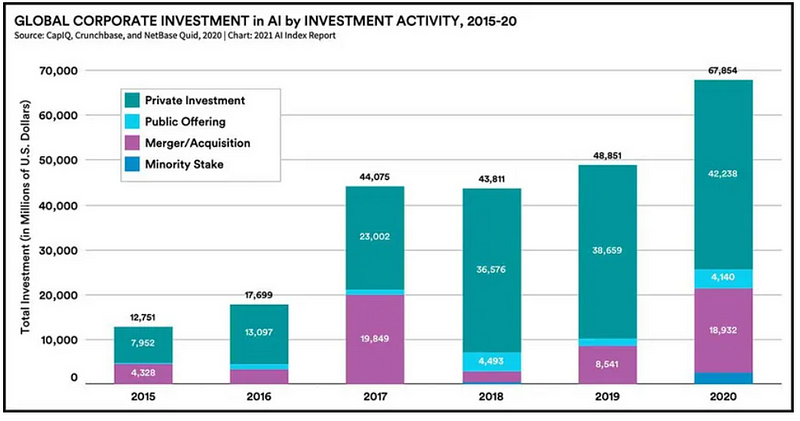The Ethical AI Dilemma: Are We Failing to Implement Standards?
Written on
Chapter 1: Understanding the AI Landscape
The concept of Industry 4.0, often associated with the AI revolution, has been evolving for over a decade. Its applications are vast and revolutionary, which is why major tech companies are eager to integrate this term into their products and services.
As AI engineers, data scientists, and data analysts, it is crucial for us to acknowledge the responsibilities that come with AI-driven solutions. While organizations and their legal teams must anticipate the repercussions of AI, one must question whether ethical AI practices are intentionally sidelined. Let’s delve into this matter.
What Constitutes Ethical AI?
At its core, ethical AI refers to the responsible use of artificial intelligence that ensures fairness not just for users, but also for society at large, which includes suppliers, customers, and stakeholders. This encompasses the privacy ramifications of data gathering and storage.
Section 1.1: The Pitfalls of Current Practices
Despite the intention behind ethical AI, its implementation often falls short. Many organizations adopt an approach that fosters algorithmic bias instead of mitigating it. The rapid expansion of AI systems has outpaced the development of adequate governance frameworks.
The COVID-19 pandemic further accelerated AI's presence in daily life, yet governance and regulatory measures have lagged behind, leading to a decline in adherence to established practices and principles.
Subsection 1.1.1: The Urgency of Ethical Guidelines

Despite significant shifts in industry standards due to numerous AI applications, it is imperative for IT leaders to establish and adhere to ethical guidelines during product development. Trust is a driving force in the consumer market, making the integration of ethical AI essential.
Chapter 2: Investment Trends and Ethical Oversights
The first video, "The A.I. Dilemma," discusses the pressing challenges facing ethical AI implementation and its implications for society.
The AI sector saw an investment surge, reaching approximately $68 billion in 2020, despite the pandemic causing declines in other industries. This resilience indicates the profound impact AI is poised to have on society in the near future.
Our Shortcomings
Superficial Discussions
Conversations surrounding ethical AI often lack depth. The dialogue reflects a limited understanding of AI systems and their societal impacts, focusing primarily on governance during production rather than addressing issues arising in design, data collection, and initial research stages.
Overrating AI Capabilities
AI systems, particularly machine learning models, may replicate patterns in data but can perpetuate biases when faced with new scenarios. This is especially evident in sectors such as AI monitoring, employment, and healthcare.
Can Diversity Enhance Ethical AI?
Absolutely. Embracing diversity can significantly influence the development of ethical AI solutions. Diverse perspectives, particularly from various cultural backgrounds, can help identify and eliminate unintentional biases.
This approach aligns with the "human-in-the-loop" methodology, allowing for early detection of ethical deviations during the developmental phase before deployment.
Where Are We Now?

Organizations aiming to maintain relevance and competitiveness must weave AI ethics into their operational practices. AI creators need to be innovative and proactive in addressing ethical shortcomings to advance responsible AI usage.
For more insights and discussions on this topic, connect with me and other talented writers on Medium.
More From Author:
Smartphones: The Impending Extinction of a Technology
Are we ready for the era of ambient computing?
Overcoming Imposter Syndrome in Tech
Do introverts struggle more with feelings of inadequacy compared to extroverts?
Monetizing Your Data Skills
Discover lucrative freelance opportunities hidden in your data expertise.
Mlearning.ai Submission Suggestions
Learn how to become a contributor on Mlearning.ai.